MCQ ON INSECTIVOROUS PLANTS class 12 for NEET | INSECTIVOROUS PLANTS class 11 | MCQ BRAIN with Answer | Check the below NCERT MCQ question for class 12 Biology based on the with Answers.
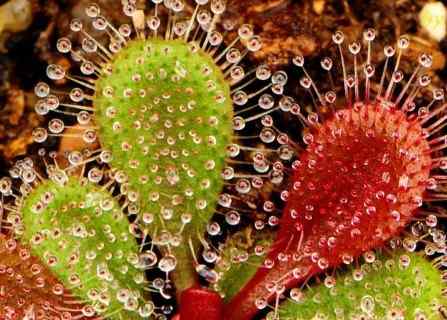
MCQ ON INSECTIVOROUS PLANTS class 12 for NEET
MCQ on INSECTIVOROUS PLANTS class 12 Biology with answers were prepared based on the latest pattern.We have provided class 12 Biology MCQs question with Answers to help students understand the concept very well.
MCQ ON INSECTIVOROUS PLANTS is useful for NEET / CSIR / UGC / CBSE / ICSE / AIIMS / EXAM / AFMC EXAM / STATE LEVEL MEDICAL EXAM 2022-23 , 2023-24
INTRODUCTION:-
Most green plants derive their nitrogen from the soil as solute conducted through the root system.However , some of them obtain nitrogen from captured animal prey.Such plants which get their nitrogen from animals are called carnivorous or insectivorous plants .
These plants usually grow in water logged and swampy soils deficient in nitrogenous compounds.
They have poorly developed roots and thus they have to depend on captured insects for their nitrogen requirements.
Infact , these plants do not live solely on the captured animals as they can manufacture their own organic food with the aid of chlorophyll present in their leaves and stems.These plants are , therefore , partly autotrophic and partly hetrotrophic.
Some of the insectivorous plants are
Nepenthes
Drosera
Utricularia
Pinguicula
Dionaea
Sarracenia
Aldrovanda
MCQ ON INSECTIVOROUS PLANTS class 12 for NEET
1. Insectivorous plants usually adapted to
(a) water rich soils
(b) soils deficient in sugars
(c) soils rich in trace elements
(d) soil deficient in nitrogenous compounds.
Ans (d) soils deficient in nitrogenous compounds
2. The insects captured by the insectivorous plants partially fulfill their requirement of
(a) Enzymes
(b) Oxygen
(c) Nitrogen
(d) Hydrogen
Ans. (c) Nitrogen
3. Choose the correct match :
Bladder wort , Sundew , Venus flytrap.
(a) Nepenthes,Dionaea, Drosera
(b) Nepenthes, Utricularia, Vanda
(c) Utricularia, Drosera , Dionaea
(d) Dionaea, Trapa ,Vanda
Ans. (c) Utricularia, Drosera, Dionea
4. A pair of insectivorous plants is
(a) Drosera and Rafflesia
(b) Nepenthes and bladder wart
(c) Dionaea and Viscum
(d) Venus fly trap and Rafflesia
Ans.(b) Nepenthes and bladder wart.
5. In pitcher plant , each pitcher is formed from the
(a) whole leaf
(b) whole stem
(c) whole root
(d) bud
Ans.(a) whole leaf
6. Pitcher plant is
(a) sarracenia
(b) aldrovanda
(c) dionaea
(d) pinguicula
Ans.(a) Sarracenia
7. Venus fly trap is
(a) dionaea
(b) sarracenia
(c) aldrovanda
(d) pinguicula
Ans.(a) Dionaea
8.The insectivorous plant mostly found in the temperate parts of Himalayas.
(a) Utricularia
(b) Pinguicula
(c) Sarracenia
(d) Dionaea
Ans.(b) Pinguicula
9. Bladder wort is
(a) Utricularia
(b) pinguicula
(c) Dionaea
(d) aldrovanda
Ans. (a) Utricularia
10. Which is not correct statement about insectivorous plants?
(a) it is carnivorous plants
(b) it is partly autotropic and partly heterotrophic
(c) plan get the nitrogen from animals
(d) it is autotrophic plants
Ans. (d) it is autotrophic plants
11.The most common Indian species insectivorous plant of Nepenthes is
(a) Nepenthes khasiana
(b) Nepenthes Drosera
(c) Nepenthes bladder wort
(d) all the above
Ans.(a) Nepenthes khasiana
12. The insectivorous plants usually grow in South Africa and Australia is
(a) Drosera
(b) Nepenthes
(c) Utricularia
(d) Sundew
Ans . (a) Drosera
13. The biggest carnivorous plants
(a) Nepenthes
(b) Sundew
(c) Utricularia
(d) bladder wort
Ans.(a) Sundew
14. Which is the most amazing carnivorous plants
(a) Nepenthes
(b) Dionea
(c) Sundew
(d) Bladder wort
Ans. (b) Dionea
ALSO READ:-
● YOU CAN WATCH BIOLOGY SIR Youtube channel
15.It is widely distributed , small ,root – less , aquatic free – floating herb .The leaves are small and bilobed .
(a) sarracenia
(b) Utricularia
(c) Sundew
(d) aldrovanda
Ans.(d) aldrovanda
16. The plant body is a small herb .Rosette of sessible pitchers emerge out from a short rhizome buried in the mud.
(a) sarracenia
(b) Utricularia
(c) aldrovanda
(d) Sundew
Ans.(a) sarracenia

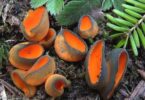
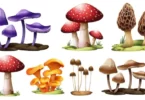
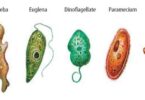
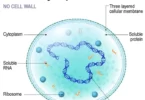
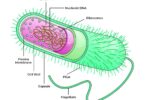
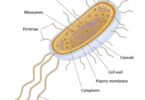
Leave a Comment